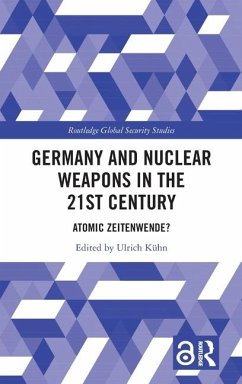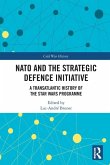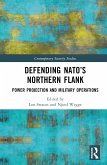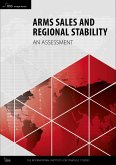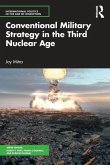This book is the first scholarly book to take a comprehensive look at Germany's nuclear weapons policies in the 21st century.
German foreign and security policy is facing a profound reorientation. Great power competition between the United States and both a revanchist Russia and a rising China, the return of war and nuclear threats to Europe, and the emergence of new technologies all force Germany to adapt. German policymakers and scholars increasingly speak of a pivotal Zeitenwende, an epochal turning point in history. How does Germany adapt its nuclear policies to these changing conditions?
The volume brings together internationally renowned nuclear scholars and policy analysts from Germany and abroad. Focussing on German nuclear deterrence, arms control and disarmament as well as nonproliferation policies, the contributors assess how German leaders have navigated continuity and change, domestically and abroad. The volume concludes that Germany remains bound by dependence on the United States and its own conservatism. Within these parameters, German leaders have adapted slowly to change and continue to balance seemingly contradictory deterrence and disarmament goals.
This book will be of much interest to students of nuclear proliferation, security studies, German politics and International Relations, as well as policymakers.
German foreign and security policy is facing a profound reorientation. Great power competition between the United States and both a revanchist Russia and a rising China, the return of war and nuclear threats to Europe, and the emergence of new technologies all force Germany to adapt. German policymakers and scholars increasingly speak of a pivotal Zeitenwende, an epochal turning point in history. How does Germany adapt its nuclear policies to these changing conditions?
The volume brings together internationally renowned nuclear scholars and policy analysts from Germany and abroad. Focussing on German nuclear deterrence, arms control and disarmament as well as nonproliferation policies, the contributors assess how German leaders have navigated continuity and change, domestically and abroad. The volume concludes that Germany remains bound by dependence on the United States and its own conservatism. Within these parameters, German leaders have adapted slowly to change and continue to balance seemingly contradictory deterrence and disarmament goals.
This book will be of much interest to students of nuclear proliferation, security studies, German politics and International Relations, as well as policymakers.
'Ulrich Kühn's comprehensive volume covers Germany's complicated relationship with Russia, perceptions of U.S. credibility, and the value of being in a nuclear alliance. A must read for NATO policymakers and scholars of nuclear studies.'
Heather Williams, Project on Nuclear Issues, Center for Strategic and International Studies, Washington, DC, USA
'This timely volume fills a gap in research that existed for too long. How Germany, a vital U.S. ally, deals with the changing nature of nuclear weapons policies is crucial to understanding the challenges of the new nuclear age.'
Tristan Volpe, Naval Postgraduate School, Monterey, CA, USA
'This volume, edited by a senior policy expert, assembles leading analysts to debate Germany's strategic options, with particular attention to the level of leadership its fractious political parties might be willing and able to provide.'
Andrew Moravcsik, Foreign Affairs, September/October 2024
'Overall, this is a carefully edited, thoroughly researched and analytically rich assessment of German nuclear policies.'
Hanns W. Maull, Survival, 66:6, December 2024
Heather Williams, Project on Nuclear Issues, Center for Strategic and International Studies, Washington, DC, USA
'This timely volume fills a gap in research that existed for too long. How Germany, a vital U.S. ally, deals with the changing nature of nuclear weapons policies is crucial to understanding the challenges of the new nuclear age.'
Tristan Volpe, Naval Postgraduate School, Monterey, CA, USA
'This volume, edited by a senior policy expert, assembles leading analysts to debate Germany's strategic options, with particular attention to the level of leadership its fractious political parties might be willing and able to provide.'
Andrew Moravcsik, Foreign Affairs, September/October 2024
'Overall, this is a carefully edited, thoroughly researched and analytically rich assessment of German nuclear policies.'
Hanns W. Maull, Survival, 66:6, December 2024

